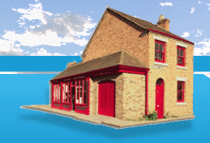|
|
 |
|
Information Related to the Text |
Warm-up activity |
Text |
|
Are All Men Equal ?

To understand how all these things happened you must have a bird's eye view of the people who lived in the colonies. At the top of the heap were the royal governors and their official friends, sent over by the King of England to help the colonists manage their affairs; rich merchants, rich plantation-owners, holders of large estates --- these, too, helped the colonists to manage their affairs. These were the upper classes, the people who signed "Gentleman" after their names or Mr. before it. Some of them had come to the colonies with money; some of them had worked hard and had risen to the top; some of them were just lucky; some of them were friends of the governor and so got huge tracts of land for very little, or even as a
favor; at any rate, no matter how they had attained that position, they were now the ruling class. These people wore the finest clothing, latest fashions imported from England; they lived in the finest houses; they had freedmen, or indentured servants, or Negro slaves working for them in one way or another; these were the people who had most of the money; these were the people who had the respect of most of the colonists because of their rank or their money; these were the people who had the power that rank and money gave; these were the people who voted, got themselves elected to high positions in the government, and ran it according to their own ideas of what was best for all the colonists; these were the people who made the laws.
The people called yeomen in old Merrie England had emigrated here and were next in rank to the upper classes. These yeomen in America were the small farmers who formed the largest group in the colonies. They were the people who did most of the hard work; they were the people who in the North sailed ships all over the world, caught fish in nearby waters, and tracked the whale in far-off seas; they were the people who did the fighting, later, when there was fighting to be done; these people, because they did own farms, had the right to vote ; sometimes they used that vote to fight against the class of merchants and planters above them; these people were hard working, ambitious, and anxious to raise themselves to the group above.
Next came the free laborers, both skilled and unskilled. The skilled worker was sometimes able to save up enough money to buy a bit of property. This meant that he would be allowed to vote and in general better himself. But until they owned some property these free blacksmiths, carpenters, tailors , rope makers, and those unfortunates without a trade had two groups above them, and so were quite far down in the social scale.
Beneath them were the indentured servants. Their happiness during their term of service depended on the type of master they had. Some were fortunate in getting kind masters who didn't work them too hard and perhaps even helped them get a good start when their term was over. But from the great number of advertisements for runaway servants that appeared in the newspapers we are led to believe that indentured servants had a very hard time. The master might whip them whenever he liked; he might give them the shabbiest clothes and the poorest kind of food; he could say whether or not they might be married; while they were in his service they were no better than slaves. Some servants were even branded by their masters.
If they ran away and were caught they might have to serve five days for every one they had been gone --- this in addition to
a terrible beating. Some of the indentured servants worked very hard, were fortunate, and went step by step up the scale
until they became wealthy landowners. But the majority of them had no such luck. At the end of their terms they were given
a suit of clothes, some corn, and a few tools. They faced a hard life. Most of them left for the back country where land was
cheap. Many of their descendants are today in the hills in the South, living miserable, poor, ignorant lives, just managing to
keep from starving. They live on what they raise, shoot, or steal. They might have been better off if Negro slavery in the
South had not made it a disgrace for white people to do field work. These people are today called "poor whites" and
"hillbillies. "
|
|
|
 |








